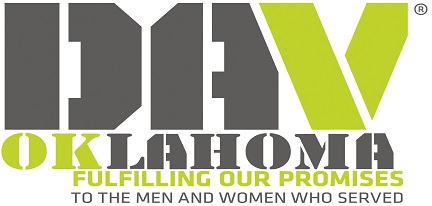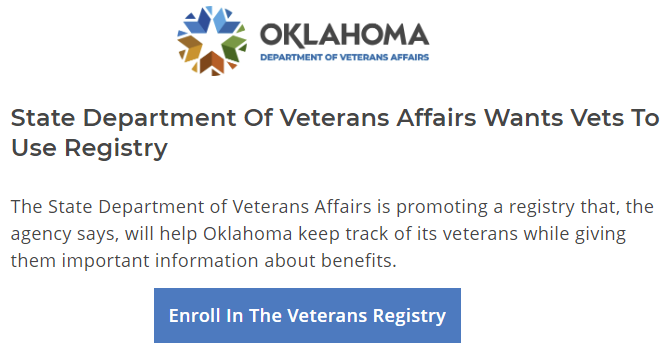About 1.6 million service members will have a big decision to make in 2018: stay with the traditional military retirement system or move to the new Blended Retirement System. Those service members includethose who have less than 12 years of service on active duty as of Dec. 31, or less than 4,320 retirement points as a member of the Guard or Reserve. The new benefits package is called the Blended Retirement System, or the BRS, because it blends elements of the traditional 20-year, all-or-nothing pension system with some new payments, designed to give at least some retirement benefits to those who don’t stay for a full 20-year career. Currently only about 19 percent of active duty troops and 14 percent of reserve component members stay long enough to earn a full retirement.
Military retirement system update – 2018 Decision for 1.6M Service Members:
Traumatic Brain Injury ► VA offering LED & SGB treatments:
Veterans with a history of mild to moderate TBI now have access to light emitting diode (LED) therapy contained in a lightweight frame that is placed on the head and a clip placed inside the nose. Results of some studies show that LED improves brain function including attention and memory, emotions and sleep. LED therapy has begun at the VA Boston Healthcare System, Jamaica Plain campus, this month. LED also is available for Veterans to use in their homes. Providers at the Long Beach VA Medical Center have begun using stellate ganglion block (SGB) to treat Veterans with PTSD symptoms. SGB is safe and may ease PTSD symptoms, such as the feelings of anxiety and constantly being on alert. It involves an injection, or shot, of medication into the neck to decrease the symptoms of PTSD.
VA DRC program ► Latest enhancements to expand participants:
In addition to claims for increased disability compensation (commonly known as claims for increase), Veterans will now be able to file certain claims for direct service connection, presumptive service connection and secondary service connection. Additionally, surviving spouses will be able to file certain claims for Dependency and Indemnity Compensation, and transitioning service members will be able to file pre-discharge claims less than 90 days from leaving the military. Veterans who choose to submit their claim under DRC can expect to receive a decision within 30 days from the time VA receives the claim.
VADIP ► Dental program revived & extended through 2021:
The VA Dental Insurance Program (VADIP) is a private dental insurance program that offers discounted
dental insurance to certain veterans and their dependents. It began as a pilot program in 2013 and ended as
scheduled in January 2017. However, recent legislation revived the program and extended it through 2021.
Veterans who are enrolled in VA healthcare and their dependents enrolled in CHAMPVA are eligible to
enroll in the VADIP program. Those enrolled in the previous pilot program are required to re-enroll in the
new one if they want coverage, re-enrollment is not automatic. VADIP is only available in the U.S. and its
territories.
Like all insurance programs there are many options available at varying costs. The VA says VADIP covers “diagnostic services, preventive services, endodontic and other restorative services, surgical services and emergency services.” The VA also says “while the insurance providers will remain the same [as under the pilot program], plan options, fees and other factors may have changed from those offered under the pilot program.” We did some research and found that the monthly premiums for 2018 are nearly double the 2016 premiums, but they are still cheaper than many other dental insurance plans.
Veterans Treatment Courts – Keep Veterans Out of Jail
On November 9, 2017, Representative Charlie Crist (FL) and Representative Jeff Denham (CA) introduced H.R. 4345, the Veteran Treatment Court Coordination Act of 2017. The bill would create coordination between the Secretary of Veterans Affairs and the Attorney General to provide grants and technical assistance to the State circuit court systems that have adopted Veterans Treatment Court Programs or have filed a notice of intent to establish a Veterans Treatment Court Program with the Secretary.
There are currently over 200 Veterans Treatment Courts in the United States. These courts seek to treat veterans suffering from a substance abuse and/or mental health disorder, while helping ensure public safety. They combine rigorous treatment and personal accountability, with the goal of breaking the cycle of drug use and criminal behavior. Veterans Treatment Courts require regular court appearances, as well as mandatory attendance at treatment sessions, and frequent and random testing for drug and alcohol use. Veterans respond favorably to this structured environment, given their past experiences in the Armed Forces.
Veterans Treatment Courts keep veterans out of jail and prison and connect them with the benefits and treatment they have earned, all while saving tax dollars for our country. Nationwide, these courts have produced a statistically significant reduction of recidivism rates in veterans.
H.R. 4345 would create a single office in the Department of Justice to coordinate the provision of grants, training, and technical assistance to help State, local, and Tribal governments develop and maintain Veterans Treatment Courts.
In accordance with DAV Resolution No. 105, calling for the continued growth of Veterans Treatment Courts for justice-involved veterans, DAV supports this bill. Please use the prepared electronic letter or draft your own to urge your Representative to cosponsor H.R. 4345.
We appreciate your support for DAV and your grassroots efforts through DAV CAN. Your advocacy makes DAV a highly influential and effective organization in Washington, DC. Your voice makes a difference and we would not be as effective without you.
Thank you for standing with us and participating in the DAV Commander’s Action Network.
Click the link below to log in and send your message:
https://www.votervoice.net/BroadcastLinks/LjsHd1Bw-7MgxNvzif0DQQ
Veterans Service Organizations urge swift passage of S. 2193:
Veteran Service Organizations are pleased this legislation would empower veterans and their health care providers to work together to determine when and where veterans should receive care based on access and quality measures. This approach is also very similar to VA’s Veterans Coordinated Access and Rewarding Experiences (CARE) plan, which was developed with direct input from major veterans service organizations. The bill would ensure certain community doctors are trained to provide veteran-centric care that abides by VA’s best practices and clinical practice guidelines. Importantly, this legislation would ensure VA does not rush implementation of the new and improved community care program by funding the current Choice Program through the end of fiscal year It also consolidates future community care funding within one discretionary appropriations account to end the current dual-funding process which has led to numerous community care funding shortfalls and veterans being denied access to community care.
The legislation would also give veterans the opportunity to access walk-in clinics throughout the country to fill the gap between costly emergency room care and waiting for ambulatory care. However, it does not protect a covered veteran from paying out-of-pocket fees for service-connected illnesses and injuries. We call on Congress to make certain veterans are not charged copayments for illnesses and injuries related to their military service.
Veterans call to remove provisions of tax reform bills that will hurt veterans employment and education:
Iraq and Afghanistan Veterans of America (IAVA), the leading Post-9/11 veterans organization along with other veteran service organizations, , raised concerns that two proposals within the current tax reform bills on Capitol Hill will hurt veterans. One proposal would remove the Work Opportunity Tax Credit, which incentivizes employers to hire veterans. The other proposal removes the student loan interest tax deduction, which allows individuals to deduct interest on student loans that they took out while pursuing their studies. These proposals, if passed, would undoubtedly hurt veterans at a moment when our nation must be investing in veterans and ensuring that any proposed changes to our tax code help, not hurt, veterans. While the tax bill may be a partisan issue, veterans employment and education should not.
Committee approves bipartisan legislation to improve veterans’ community care:
U.S. Senators Johnny Isakson, R-Ga., and Jon Tester, D-Mont., chairman and ranking member of the Senate Committee on Veterans’ Affairs, today applauded the overwhelming committee passage of bipartisan legislation to streamline and strengthen veterans’ healthcare services at the U.S. Department of Veterans Affairs (VA) and in the community to ensure efficient, timely and quality care.
The Caring for Our Veterans Act of 2017 as amended was passed 14-1 by the committee. The legislation now goes to the full Senate for a vote.
Senate bill would expand caregiver benefits to veterans of all eras
If enacted, recently introduced Senate legislation would strengthen and reform the Department of Veteran’s Affairs health care system and create a new integrated community care program.
Sponsored by Senate Veterans’ Affairs Committee Chairman Johnny Isakson and Ranking Member Jon Tester, the bipartisan “Caring for our Veterans Act of 2017” also includes a critical provision that would extend comprehensive VA caregiver benefits to veterans severely injured during and prior to the Vietnam War. Following a two year period, the program would expand to include veterans of all eras.
VA suspends applications for new ID cards:
The Department of Veterans Affairs has suspended applications for its new veteran identification card program due to a large number of applicants, according to a notice on its website. According to outside sources, the VA immediately faced technical errors when attempting to issue new ID cards to eligible veterans.




